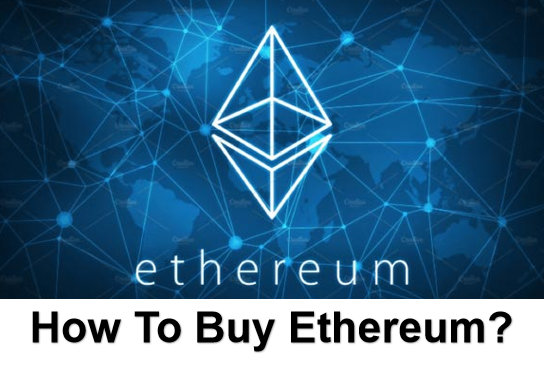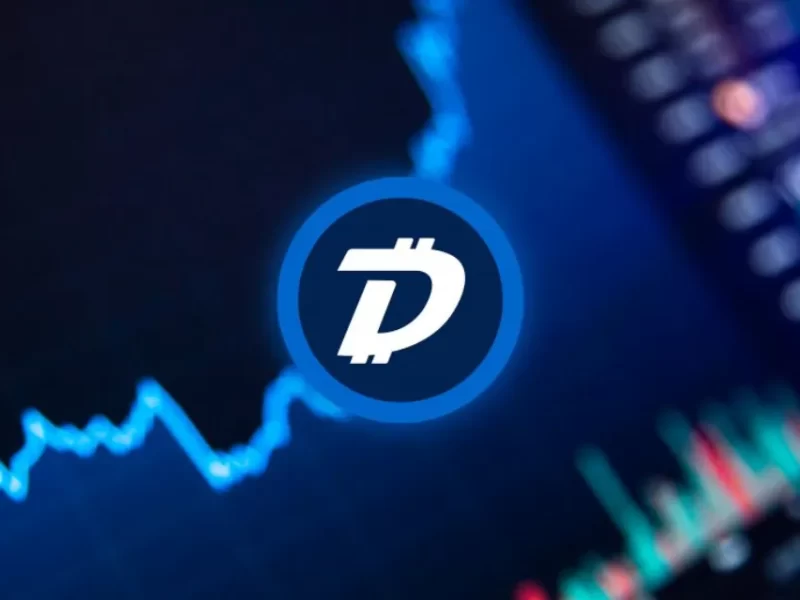Buying Ethereum involves converting your U.S. dollars into “ether,” or ETH, which is the currency of the Ethereum blockchain. People who own Ethereum can use it as payment for goods and services, or to cover fees for the processing power used to carry out complex transactions in fields such as finance, art, and computer science.
Many owners of Ethereum have also used it as an investment vehicle in recent years amid a rush of interest in the crypto space. Ethereum hit an all-time high late in 2021, and it has been gaining on Bitcoin in terms of global market capitalization.
But before you make any decisions, remember that cryptocurrency can be a risky asset whose market value can fluctuate significantly.
Want more than just to buy ETH? Access dozens of different cryptocurrencies buying guides 2022 here.
What is Ethereum (ETH)?
Before you start buying Ethereum, it’s important to understand exactly what you’re investing in. Ethereum has price history to support its potential as a store of value, but there’s also interesting innovation happening with Ethereum that highlights the coin’s utility.
While cryptocurrency assets shrank in 2018 and 2019 from their December 2017 peak, the crypto market roared back to new highs through 2021, and are now worth many times more than what they were at the previous peak; although there has been a large pullback throughout 2022. There is still a great deal of interest in this space as the market continues to see innovation. ETH’s value was trading at around $2,000 in May 2022, down from November 2021 highs approaching $5,000.
The primary appeal to the digital currency is its integration with the Ethereum Network. Essentially, ETH is the driving force behind the capabilities of the Ethereum Network overall. With the Ethereum Network offering vast opportunities for development, ETH is an investment that many see as more promising than Bitcoin. Ethereum is also backed by multiple Fortune 500 companies and is being used by multiple financial institutions. For all of these reasons and more, many investors are rapidly adding ETH to their portfolios.
Read More: What is Ethereum (ETH)?
What is Ethereum Worth?
Ethereum launched in 2018, and it had multiple new all-time highs in 2021 — the most recently when it went over $4,800 last November. Its price has fluctuated between about $1,000 and $4,800 per coin over the past year. While Ethereum’s price has dropped off a bit since its latest all-time high last year, it is still significantly higher than the $1,000 range it was in a year ago this time.
Like most cryptocurrencies, Ethereum’s price fluctuates a lot. Price fluctuation should be anticipated with any crypto investment. If near-term price fluctuations bother you, you might be better off reconsidering investing in cryptocurrency at all.
It’s also important to remember that Ethereum — like any cryptocurrency — only has value because people think it does. Its price is not tied to any commodity or currency, so it’s prone to intense swings based on external factors like media attention or proposed crypto regulation.
Read More: How To Send Ethereum from Coinbase to MetaMask
How Does Ethereum (ETH) Work?
Ethereum is a decentralized organization and does not make money in the traditional way. It is made up of a network of validators, miners, smart contracts, and users. When a user interacts with the network by performing an action, it pays a transaction fee to miners and validators to process the transaction, also known as gas fee. The fee that users pay is often regarded as revenue for Ethereum, but most of it is burnt away with the rest being given to miners. Miners also earn ETH rewards for constantly validating the network.
Although it can be used for merchant transactions with its currency ETH, the objective of the Ethereum network was to go beyond this. Smart contracts serve the purpose of enabling the facilitation of contracts on the network, providing specific stipulations are met. Decentralized applications, known as DApps for short, can essentially be anything that a computer program can be written for. Just as with anything on a blockchain, they are of a decentralized nature and are not controlled by a single entity.
Read More:
How to Make Money with Ethereum (ETH)?
How to Earn Free Ethereum (ETH)?
Why Buy Ethereum (ETH)?
If you’re looking to speculate on Ethereum, it’s simple to just buy and trade the cryptocurrency on a popular trading platform such as Robinhood or Binance.US. You can access the market 24 hours a day, and you’ll have good liquidity, meaning you can transact without moving the price much. The profit calculus is simple, too: You profit when you sell coins for more than you paid.
If you’re thinking about mining Ethereum, you have to think like a business owner. You’ll have to invest significant amounts of money in mining rigs so that you can produce the cryptocurrency and then you’ll have to expend costly electricity as you mine it. You’ll need to run the numbers to see if it makes financial sense for you to make the initial investment and keep your operation running. That is, you want to earn coins that are worth more than you paid to mine them.
Most importantly, with Ethereum moving to a proof-of-stake system, Ethereum will no longer need miners. Instead, validators will oversee the system and validate crypto transactions. That’s why one Ethereum developer recommends not investing in any more mining equipment.
In the end, it’s easier to buy Ethereum than to mine it and requires less effort. There may still be profit potential in the mining of cryptocurrency, but you’ll have to see if the numbers work.
How to Buy Ethereum (ETH) in 4 Simple Steps
- Step 1: Decide where to buy Ethereum (ETH).
- Step 2: Think about how to store your Ethereum (ETH).
- Step 3: Make your purchase.
- Step 4: Manage your investment.
How to Buy Ethereum (ETH) on a Crypto Exchange
1. Coinbase
- Step 1. Create a Coinbase account
Download the Coinbase app and start the sign up process. You will need a valid ID and may be asked for proof of address in order to transact, so be sure to have those ready. Verifying your ID may take longer than a few minutes, depending on where you live.
- Step 2. Add a payment method
Tap on the payment method box and connect a payment method. You can use a bank account, debit card or initiate a wire.
- Step 3. Start a trade
Press button then select “Buy” from the list of options.
- Step 4. Select Ethereum (ETH) from the list of assets
Search for Ethereum (ETH) by typing “Ethereum (ETH)” into the search bar. When you see Ethereum (ETH) show up in the results, tap it to open up the purchase screen.
- Step 5. Enter the amount you want to buy
Use the number pad to input the amount you want to spend in your local currency. The app will automatically convert that into a Ethereum (ETH) amount.
- Step 6. Finalize your purchase
Tap “Preview buy” when ready. You’ll be shown the details of your purchase. Make sure everything looks good and then confirm your purchase. That’s it, you’ve bought Ethereum (ETH).
2. eToro
- Step 1: Find a crypto exchange or trading platform that offers Ethereum (ETH)
There are a number of exchanges that will let you trade your funds for Ethereum (ETH). One of them is the eToro trading platform.
- Step 2: Sign up
If you’d like to buy Ethereum (ETH) through eToro, all you need to do is sign up, verify your account and make a deposit. From there, you’ll be able to buy and sell Ethereum (ETH) easily.
- Step 3: Buy Ethereum (ETH)
Ethereum (ETH) can be purchased fractionally, so you don’t need to buy a full Ethereum (ETH) to own some. For example, if Ethereum (ETH)’s price is $10,000, you can purchase 0.1 Ethereum (ETH) for $1,000.
3. Bitfinex
- Step 1. Log in to your account or sign up to Bitfinex.
- Step 2. Go to Deposit, choose Payment Cards.
- Step 3. Select the payment processors.
- Step 4. Choose the crypto and enter the amount.
- Step 5. Select the destination wallet and proceed payment
4. Binance
- Step 1: Create your Binance Account
Sign up with your email address or mobile phone number, and choose a strong password. Or, download the Binance crypto trading app from the App Store or Google Play store and open an account there.
- Step 2: Start Buying Ethereum (ETH)
There are two main ways to buy Ethereum (ETH) on Binance using cash: you can link your debit/credit card or bank account, or buy crypto directly from other users on Binance P2P.
Linking your debit card, credit card, or bank account (available in many regions) is one of the easiest ways to buy Ethereum (ETH). Through this method, you can buy Ethereum (ETH) for a minimum. (This amount varies depending on the currency you use.)
Buy Ethereum (ETH) directly from other Binance users with your local fiat currency via Binance P2P. Browse a variety of Ethereum (ETH) listings to shop the best offers on Ethereum (ETH) from other users. With thousands of merchants and hundreds of payment methods available, Binance P2P caters to many regions in the world right now.
5. KuCoin
- Step 1. Sign Up for KuCoin Account
- Step 2. Secure Your KuCoin Account
- Step 3. Verify Your Identity
- Step 4. Connect Your Account to Funds Fund Your Account
- Step 5. Start Trading on KuCoin
How to Buy Ethereum (ETH) With PayPal
- Step 1. Login to Paypal and Select Cryptocurrency
In Paypal website, you should see the option for cryptocurrency in the top right of the dashboard, next to ‘Send’ and ‘Request’.
- Step 2. Select ‘Ethereum (ETH)’
Or choose any of the other coins listed.
- Step 3. Select ‘Buy’
- Step 4. Choose How Much You Want to Buy
Enter a number of dollars you want to spend on Ethereum (ETH) or choose a pre-set amount below.
- Step 5. Select Payment Method
You likely already have your bank account linked to your Paypal account, but you can also hook up another method if you don’t want to use your bank account.
- Step 6. Hit the ‘Buy’ button
After finalizing your purchase, you will be taken to a confirmation screen, and you should see your coins reflected in your Paypal account dashboard.

How to Buy Ethereum (ETH) With a Credit Card
Not all platforms will allow you to use a credit card to make your cryptocurrency purchases. If you do choose a platform allowing such transactions, keep in mind that there may be extra fees associated with the purchase. Many credit card companies process cryptocurrency purchases via credit card as cash advances, which can incur high-interest rates, among other fees.
Some credit card companies allowing cardholders to make crypto purchases treat the purchases as a cash advance (cash advances usually involve a cardholder using a credit card to withdraw money from an ATM). This has several critical disadvantages.
- Cash Advance Fees: Some cards treat a cryptocurrency purchase as a cash advance. This means each crypto purchase is subject to a cash advance fee. A typical fee of either $10 or 5% (whichever is greater) would be charged. These fees are in addition to fees charged by the vendor or exchange.
- Cash Advance Interest Rates: Most cards have a higher Annual Percentage Rate (APR) for cash advances—often over 25%. This is a variable interest that changes with the market. Interest will start to accrue on the day the purchase is made and will continue to accrue until the credit is paid off. By comparison, cardholders have up to 25 days to pay off a regular credit card charge before accruing any interest.
- No Credit Toward Rewards orBonuses: Credit used to purchase crypto (and thus make a cash advance) typically doesn’t qualify for any purchase rewards nor toward spending that would normally apply to a welcome bonus.
- Lower Credit Limits: Cash advances often have a lower credit limit than the cardholder’s overall credit limit that applies to the card itself. Cardholders hoping to make big crypto buys may find themselves limited by the cash advance terms and limitations.
How to Buy Ethereum (ETH) With a Cash?
This section explains how to invest in ETH using cash. Keep reading to understand appropriately.
For various reasons, purchasing Ether directly from another party may be preferable. Regulations pertaining to such transactions, however, may vary depending on geographic region. Online peer-to-peer (P2P) exchanges typically still involve KYC and AML processes.
P2P exchanges aim to facilitate over-the-counter (OTC) trading of local currencies for crypto assets such as BTC or ETH. Based on the Ethereum blockchain’s structure, OTC trading of ETH benefits from Ethereum smart contracts in helping the process.
P2P crypto services essentially function as marketplaces that enable users to pay local currencies to individual entities in exchange for varying amounts of crypto assets such as Ether. Such P2P platforms or services generally utilize escrow features. Money transfer methods can include bank transfers, payment platforms, etc.
Meeting with someone in person, in a public place, may also be an option for buying Ether directly. Such transactions come with risks, however, so take every precaution necessary, similar to when conducting a traditional financial transaction with a stranger. You will also need active internet access for the transaction.
Trading ETH peer-to-peer can be more private than using centralized exchanges. This method of trading, however, can require a certain level of trust between the two involved parties, especially if meeting in person. On top of that, if you decide to engage in P2P trades, it is your responsibility to ensure that you are complying with your local regulations.
Buying Ethereum (ETH) FAQs
What is a Ethereum (ETH) Wallet?
A good understanding of crypto wallets and how Ethereum transactions work in general may be beneficial information for potential Ether buyers. There are multiple different types of wallets including local and hardware wallets. You can also use a wallet provided by a cryptocurrency exchange.
Another thing to consider is whether you want to use a so-called “full node” wallet, which requires you to download the entire Ethereum blockchain (very large in terms of computer storage size) or a “light client,” which doesn’t require a full copy of the blockchain to operate. Of course, if you’re new to Ethereum, a light client would be a preferred option. Some crypto wallets offer the ability to buy or exchange crypto assets within their related wallet apps.
If you’re buying Ether from an exchange, using a wallet on the same platform is the easiest option, but there are pros and cons to that approach. Unfortunately, the cryptocurrency world is filled with instances of exchange hacks.
An exchange hack might occur on a broader scale, during which the overall exchange loses funds to the hack, or you might be hacked individually. Some exchanges have insurance measures in place, although details vary, and a hack might still result in lost funds or delays associated with the return of the funds.
Thus, using a wallet that is controlled by the asset holder away from exchanges can serve as a more secure option as it provides more control over asset holdings, as well as varying levels of security, based on users’ measures and practices. Using such wallets, however, puts more responsibility on the asset holder.
Holding ETH on an exchange calls on a number of best practices for account and asset safety, including the use of two-factor authentication (2FA). Crypto exchanges, however, generally have customer service and do not require private key management by the user.
Off-exchange wallets, also called self-hosted crypto wallets, on the other hand, put responsibility entirely on the user to care for his or her passwords, private keys and asset storage. What is a private key? At its simplest, a private key gives the holder access to funds stored in that key’s related wallet.
Can You Sell Ethereum (ETH)?
You can sell Ethereum for fiat, but you can also sell it for most other cryptocurrencies. If you are looking to sell Ethereum (ETH), the easiest way is through a trusted cryptocurrency platform. While there are many platforms to choose from, not all cryptocurrency changes offer the same services, rates, and customer support. If you are looking for the quickest, easiest way to sell Ethereum and get the best value for your cryptocurrency, then Digital Surge is the choice for you. Our intuitive, easy to use platform allows users to sell their Ethereum.
Read More: How to Sell Ethereum (ETH)?
What is an Ethereum (ETH) Address?
Externally Owned Address refers to an account with a public and private key pair that holds your funds.
An Ethereum address is a 42-character hexadecimal address derived from the last 20 bytes of the public key controlling the account with 0x appended in front. e.g., 0x71C7656EC7ab88b098defB751B7401B5f6d8976F.
The Ethereum address is the “public” address that you would need to receive funds from another party. To access funds in the address, you must have its private key. Kindly exercise duty of care when handling your private key as they can be used to access all the funds in an address.
A wallet is an interface that you may use to manage your Ethereum account as well as its public and private key pair.
How to Accept Ethereum (ETH) Payments?
Ethereum is the world’s second-largest cryptocurrency with a market capitalization of $140bn. It’s not surprising that so many stores and service providers accept Ethereum as a payment option together with Bitcoin payment. Here are the main categories of businesses where you can pay with ETH:
- eCommerce: you can buy all sorts of items with Ethereum from electronics to pet food, and even cannabis seeds.
- iGaming: casinos and betting sites, eSports, etc.
- Travel: Book a hotel, flight, or car rental – or even charter a private jet.
- Services: website hosting, domain names, VPNs, and more.
- Adult websites: as MasterCard and Visa have cut their ties to many adult sites, Bitcoin & Ethereum are now the only viable option.
- Gift card store accepting Ethereum. Gift cards are a clever way to use ETH for payments on websites that don’t accept it directly, such as Amazon.
To find out who accepts Ethereum, you can browse various merchant directories like Cryptwerk, but keep in mind that they aren’t always up-to-date.



